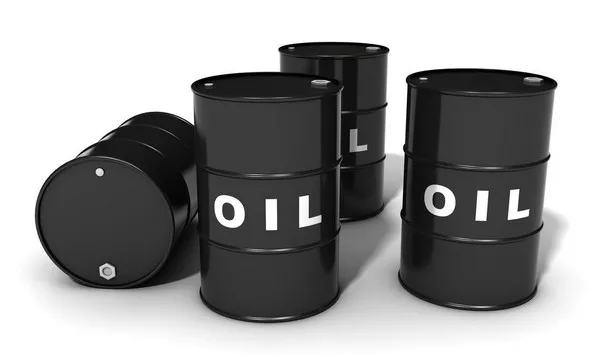In the dynamic world of commodities trading, energy futures represent a significant segment, offering investors exposure to the fluctuating prices of various energy products, including crude oil, natural gas, gasoline, and heating oil. Futures contracts for energy commodities provide a platform for speculation, hedging, and risk management, allowing market participants to capitalize on price movements and navigate the complexities of global energy markets. In this comprehensive guide, we will delve into the realm of energy futures trading, exploring the opportunities, challenges, and implications for investors.
Understanding Energy Futures
Energy futures are financial contracts that obligate the buyer to purchase, and the seller to deliver, a specified quantity of an energy commodity at a predetermined price and future date. These contracts are traded on futures exchanges, providing investors with exposure to the prices of energy products without the need for physical delivery. Energy futures serve as essential tools for stakeholders in the energy industry, including producers, consumers, traders, and speculators, enabling them to manage price risk, hedge against adverse price movements, and speculate on future price trends.
Types of Energy Futures
Energy futures encompass a wide range of commodities, each with its unique characteristics and market dynamics:
Crude Oil Futures: Crude oil futures represent contracts for the delivery of crude oil, the most actively traded energy commodity in the world. Crude oil futures contracts are available for various grades of crude oil, including West Texas Intermediate (WTI) and Brent crude, and serve as benchmarks for global oil prices.
Natural Gas Futures: Natural gas futures contracts involve the delivery of natural gas, a widely used fuel for heating, electricity generation, and industrial processes. Natural gas futures provide exposure to the prices of natural gas and enable investors to hedge against price volatility and speculate on supply and demand dynamics.
Gasoline Futures: Gasoline futures contracts represent agreements for the delivery of gasoline, a refined petroleum product used primarily as a fuel for automobiles. Gasoline futures allow investors to track the prices of gasoline and capitalize on changes in refining margins, supply disruptions, and seasonal demand patterns.
Heating Oil Futures: Heating oil futures involve contracts for the delivery of heating oil, a distillate fuel used for residential heating and industrial purposes. Heating oil futures enable investors to hedge against fluctuations in heating oil prices and anticipate changes in heating demand during the winter months.
Benefits of Trading Energy Futures
Trading energy futures offers several potential benefits for investors:
Portfolio Diversification: Energy futures provide investors with exposure to a diverse range of energy commodities, offering potential diversification benefits and reducing portfolio risk through non-correlated assets.
Liquidity: Energy futures markets are highly liquid, with robust trading volumes and tight bid-ask spreads, facilitating efficient price discovery and execution of trades.
Hedging Opportunities: Energy futures enable producers, consumers, and other market participants to hedge against price risk and protect against adverse price movements, thereby enhancing risk management capabilities and safeguarding profitability.
Speculative Opportunities: Energy futures offer opportunities for speculative trading, allowing investors to capitalize on short-term price movements, market trends, and geopolitical developments through leveraged positions and derivatives strategies.
Risks of Trading Energy Futures
Despite the potential benefits, trading energy futures entails certain risks that investors should be aware of:
Price Volatility: Energy markets are prone to significant price volatility, driven by factors such as supply and demand imbalances, geopolitical tensions, weather events, and economic indicators. Price volatility can lead to substantial fluctuations in the value of futures contracts and result in potential losses for investors.
Leverage and Margin Risks: Futures trading involves the use of leverage, which amplifies both potential returns and potential losses. Trading on margin exposes investors to the risk of margin calls, where they may be required to deposit additional funds to cover losses or maintain margin requirements.
Market and Operational Risks: Futures markets are subject to market risks, including liquidity risk, counterparty risk, and regulatory risk. Operational risks such as system outages, trading errors, and disruptions in market infrastructure can also impact the execution and settlement of trades.
Geopolitical and Regulatory Risks: Geopolitical events, changes in government policies, and regulatory developments can affect energy markets and influence the prices of energy futures contracts. Investors should stay informed about geopolitical risks and regulatory changes that may impact their trading activities.
Conclusion
In conclusion, trading energy futures offers investors a gateway to the dynamic and interconnected world of global energy markets. Energy futures provide opportunities for speculation, hedging, and risk management, allowing investors to capitalize on price movements, diversify their portfolios, and navigate market uncertainties. However, trading energy futures entails certain risks, including price volatility, leverage, and operational challenges, which investors must carefully consider and manage.
By understanding the fundamentals of energy futures trading, conducting thorough research, implementing robust risk management strategies, and staying informed about market developments, investors can navigate the energy futures markets with confidence and pursue their investment objectives effectively. Whether seeking to hedge against price risk, capitalize on market trends, or diversify their portfolios, energy futures offer a range of opportunities for investors to participate in the dynamic world of commodities trading.


